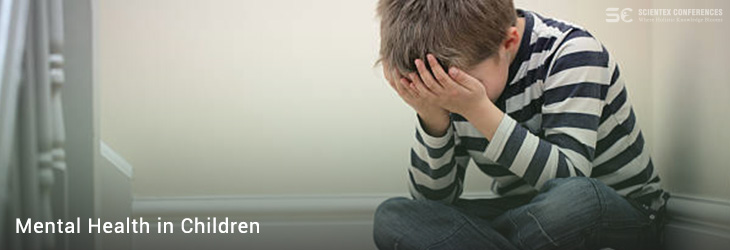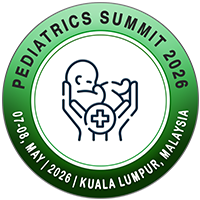Track: Mental Health in Children

Mental health in children is an important element of their total well-being and development, and it includes emotional, psychological, and social factors. Anxiety, sadness, Attention-Deficit/Hyperactivity Disorder (ADHD), behavioral problems, and trauma-related diseases are all potential mental health challenges for children. The session further examines eating disorders, the influence of cultural factors, and prevalent mental health conditions in younger populations. Additionally, it highlights progressive treatment methodologies, including state-of-the-art therapeutic techniques and innovative interventions. This session is designed to deepen understanding and refine clinical approaches to managing intricate mental health challenges in children and adolescents.
Early Childhood Mental Health:
This session focuses on the developmental aspects of mental health in early childhood, including the identification and management of conditions such as attachment disorders and early-onset anxiety. It emphasizes the role of early intervention and parental support in promoting healthy emotional and psychological development.
Trauma and Stress-Related Disorders:
Explore the impact of trauma and chronic stress on pediatric mental health, including Post-Traumatic Stress Disorder (PTSD) and acute stress reactions. This session covers assessment tools, therapeutic modalities, and evidence-based interventions for children exposed to traumatic events.
Eating Disorders in Children and Adolescents:This session examines the prevalence, diagnosis, and treatment of eating disorders such as anorexia nervosa, bulimia nervosa, and binge eating disorder in pediatric populations. It includes discussions on multidisciplinary treatment approaches and the importance of early intervention.
Mood Disorders in Adolescents:
Addressing mood disorders such as Major Depressive Disorder (MDD) and bipolar disorder, this session focuses on diagnostic criteria, clinical manifestations, and management strategies in adolescents. It highlights the role of pharmacotherapy and psychotherapeutic interventions.
Cultural Considerations in Child Mental Health:
This session explores the impact of cultural factors on the mental health of children, including variations in symptom expression, stigma, and access to care. It emphasizes the importance of culturally competent assessment and treatment approaches in providing effective care.
Common Mental Health Disorders in Children:
Focused on prevalent mental health disorders such as Attention-Deficit/Hyperactivity Disorder (ADHD), Autism Spectrum Disorder (ASD), and Generalized Anxiety Disorder (GAD), this session covers diagnostic challenges, treatment options, and long-term management strategies.
Innovative Treatment Approaches:
Explore advanced therapeutic interventions, including Cognitive-Behavioral Therapy (CBT) adaptations, pharmacological advancements, and digital mental health solutions. This session highlights how these approaches are enhancing treatment efficacy and accessibility for pediatric patients.
Scientific Highlights
- Neonatology and Perinatology
- Advances in Neonatal Care
- Neonatal hearing disorders
- Genetics and Genomic Medicine in Pediatrics
- Developmental and Behavioural Pediatrics
- Childhood Nutrition and Obesity
- Pediatric Allergy and Immunology
- Pediatric Pulmonology
- Pediatric Cardiology
- Pediatric Gastroenterology
- Pediatric Neurology
- Pediatric Oncology
- Pediatric Hematology
- Pediatric Rheumatology
- Pediatric Infectious Diseases
- Pediatric Nephrology & Urology
- Pediatric Dermatology
- Pediatric Surgery
- Pediatric Emergency Medicine
- Pediatric Pain Management and Palliative Care
- Mental Health in Children
- Adolescent Medicine
- Pediatric Pharmacology
- Pediatric Dentistry
- Innovations in Pediatric Health Care
- Recent Technology and Child Health


